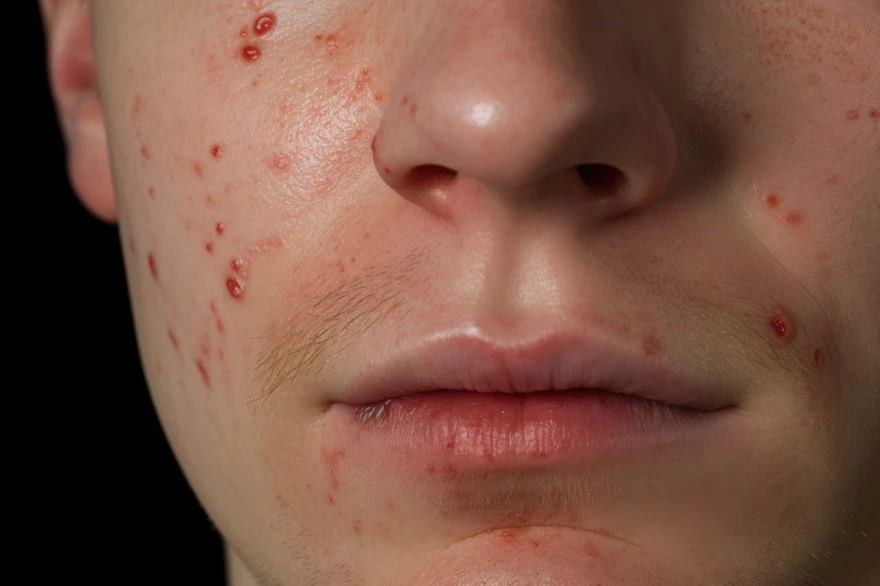Preventive Healthcare
Understanding Kawasaki Disease: Diagnosis and Treatment
789 Views
0

What Is Kawasaki Disease?
Kawasaki disease is a rare but serious inflammatory condition that primarily affects children under the age of five. It targets blood vessels throughout the body, including the coronary arteries, which supply blood to the heart. Without timely Kawasaki disease treatment, Kawasaki disease can lead to significant heart complications. The exact Kawasaki disease causes remains unknown, and it does not spread from person to person.
What Are The Symptoms Of Kawasaki Disease?
Kawasaki disease symptoms generally appear in phases, with early signs often being more severe. Here are some key Kawasaki disease symptoms:
- High fever lasting for more than five days.
- Severe redness in the eyes (conjunctivitis) without pus.
- Rash on the torso and genital area.
- Swollen, red lips and strawberry tongue.
- Swollen, red palms and soles, often with peeling skin.
- Swollen lymph nodes, typically in the neck.
- Irritability in younger children is also common.
What Causes Kawasaki Disease?
The exact Kawasaki disease causes is still unknown. Researchers believe it could be triggered by an infection related to viruses or bacteria or an immune response to environmental factors such as chemicals or irritants.
What Are The Risk Factors For Kawasaki Disease?
Key risk factors for Kawasaki disease include:
- Age: The highest susceptibility is in children under five years old,
- Genetics: It appears more frequently in children of Asian descent.
- Gender : Being assigned male at birth .
What Are The Complications Of Kawasaki Disease?
If not treated promptly, Kawasaki disease causes serious cardiovascular complications, the most severe being coronary artery aneurysms, which increase the risk of heart attacks, blood clots, and heart vessel blockages.
Other complications might include hepatitis in your child's liver, pancreatitis (inflammation) in your child's pancreas, heart attack, inflammation of heart muscles, valves, and the outer lining of the heart. In some cases, temporary arthritis or liver and gallbladder issues can occur.
How Is Kawasaki Disease Diagnosed?
Diagnosing Kawasaki disease involves ruling out other diseases with similar Kawasaki disease symptoms through a combination of clinical evaluation and laboratory tests. Doctors check for fever along with at least four of the primary symptoms of the disease.
What Are The Three Stages Of Kawasaki Disease?
Kawasaki disease progresses through three distinct stages:
- Acute Stage: High fever, eye redness, rash, swollen hands and feet, and swollen lymph nodes. This stage is the most intense and typically lasts 1-2 weeks.
- Subacute Stage: Symptoms of the acute stage may subside, but this stage brings peeling skin, joint pain, and liver abnormalities. It can last until the fourth week.
- Convalescent Stage: Symptoms continue to gradually fade during this final stage, which can last until all blood markers of inflammation have normalised. This phase may take up to eight weeks from the onset of symptoms.
What Tests Will Be Done To Diagnose Kawasaki Disease?
Kawasaki disease diagnosis typically involves several tests to support the clinical diagnosis including:
- Blood tests : These are used to detect high levels of inflammation and may include a complete blood count, erythrocyte sedimentation rate (ESR), and C-reactive protein (CRP).
- Urine tests : These are used to check for signs of inflammation and rule out urinary tract infections.
- Electrocardiogram (ECG) : These are used to assess heart function and detect irregularities.
- Chest X-ray : These are used to view the size and shape of the heart and check for lung infections.
These tests help confirm the Kawasaki disease diagnosis and guide appropriate treatment plans.
How Is Kawasaki Disease Treated?
Kawasaki disease treatment aims to reduce inflammation and prevent heart complications. The standard Kawasaki disease treatment approach includes:
- Intravenous Immunoglobulin (IVIG): This is the primary treatment and is most effective when administered within the first ten days of illness. IVIG is a blood product that helps reduce inflammation and decrease the risk of coronary artery aneurysms.
- Aspirin: This can be used as a Kawasaki disease medication. Initially, high doses are used to reduce fever, pain, and joint swelling, and later, low doses help prevent blood clots.
- Corticosteroids: This may be used if symptoms are severe or if the response to IVIG is inadequate.
- Follow-up Echocardiograms: Regular heart monitoring is crucial, especially in the first few weeks after diagnosis to detect any changes in the heart.
What Are The Complications Of The Treatment?
Kawasaki disease treatment is generally safe, but it can have some complications, including:
- Hemolytic anaemia (red blood cells die faster than normal).
- Infusion reactions.
- Chest pain.
- Difficulty breathing.
- Upset stomach.
- Pain in muscles or joints.
What Is The Outlook For Kawasaki Disease?
The prognosis for Kawasaki disease in children is generally very good with early and effective treatment. Complications that affect the heart can be severe enough to be fatal within 15 to 45 days of the starting of the fever. Most children fully recover without any lasting effects. However, about 5% of cases develop coronary artery aneurysms, which can lead to long-term heart complications. Kawasaki Disease in adults can cause long-term damage to arteries and possible heart issues.
Conclusion
In conclusion, Kawasaki disease is a rare but serious condition that primarily affects young children. Prompt recognition of its symptoms, early diagnosis, and aggressive treatment, including IVIG and aspirin therapy, are crucial for minimising the risk of long-term complications, particularly coronary artery aneurysms. While the exact Kawasaki disease causes remains unknown, awareness among parents and healthcare providers is paramount for timely intervention.
Metropolis Healthcare provides a comprehensive range of 4000+ clinical laboratory tests and profiles. Schedule your appointment with Metropolis Healthcare and protect your child from Kawasaki disease today.
 Home Visit
Home Visit Upload
Upload














1701259759.webp)









 WhatsApp
WhatsApp